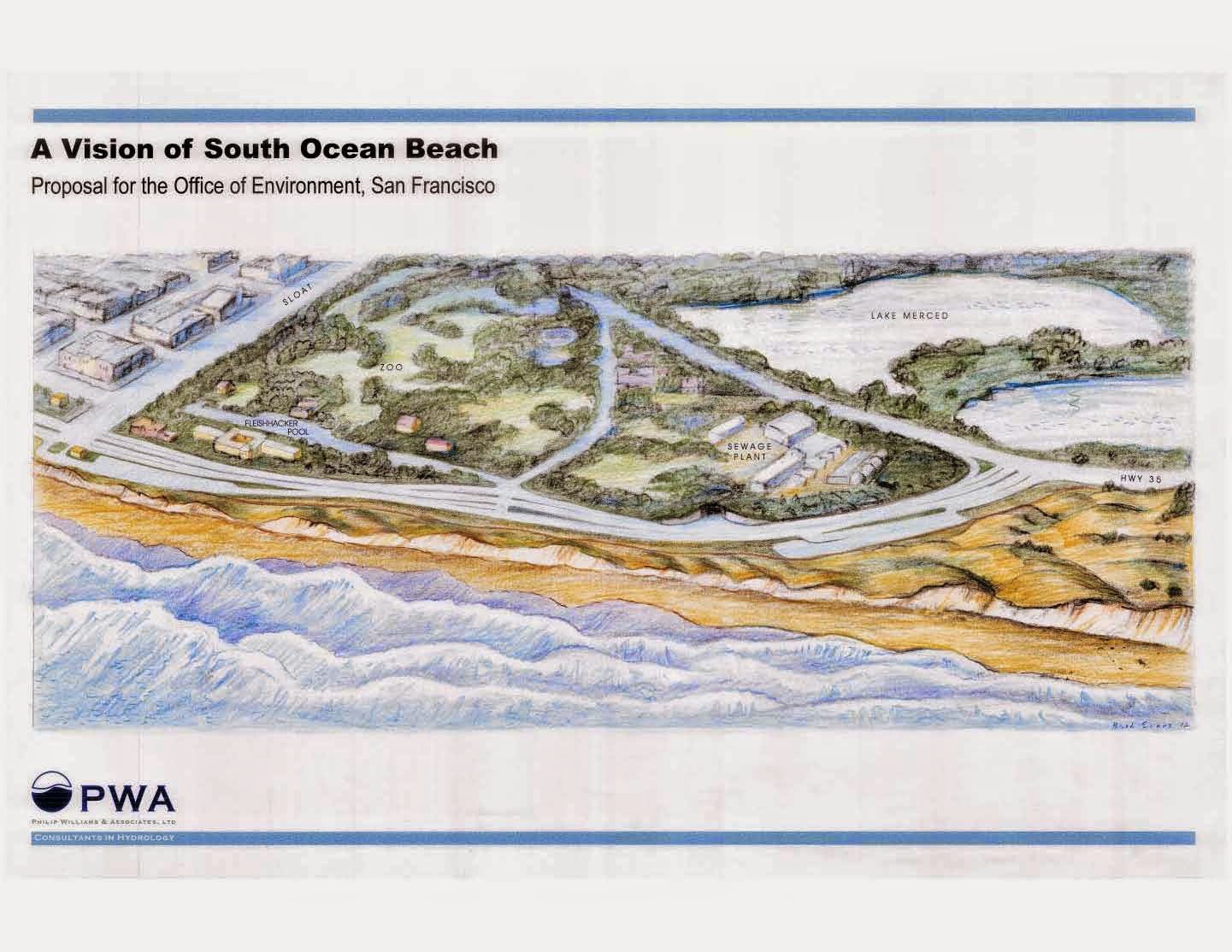 |
| A smooth gray line peels off at Sloat's south lot. (photo B. McLaughlin) |
Greetings Surfriders and Friends,
Unfortunately, the new sand back-passing project for Sloat continues to be delayed. Over the last month, we have made phone calls to our contact at the PUC. Apparently there was a permit issue that is responsible. The good news is that the equipment is in place at Sloat south lot and ready to go. We will update with photos when the project is complete.
In other news, the chapter attended the California Coastal Commission meeting in Half Moon Bay on Wednesday November 12. At the hearing, Surfrider registered support for San Francisco's grant application to update their coastal planning document (also known as the Local Coastal Program or LCP). With an updated LCP, the restoration work for Sloat can move forward in a more efficient manner. Without a current LCP, individual permits for each piece of the restoration might have been needed from the commission. Securing just one permit can be very time consuming. A revised LCP will help expedite the restoration process as well as ensure the final Sloat design is compliant with the threat of sea level rise and climate change driven storms. We believe these latter two elements will help promote the managed retreat strategy we have long been seeking. Thanks for checking in!
